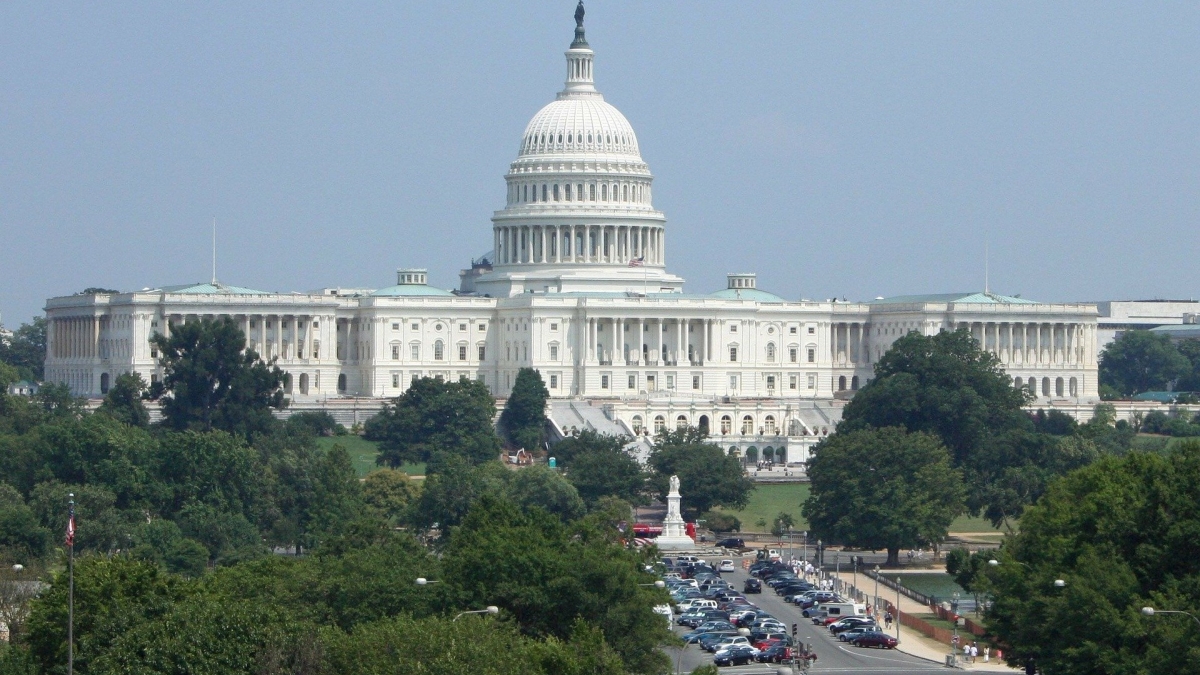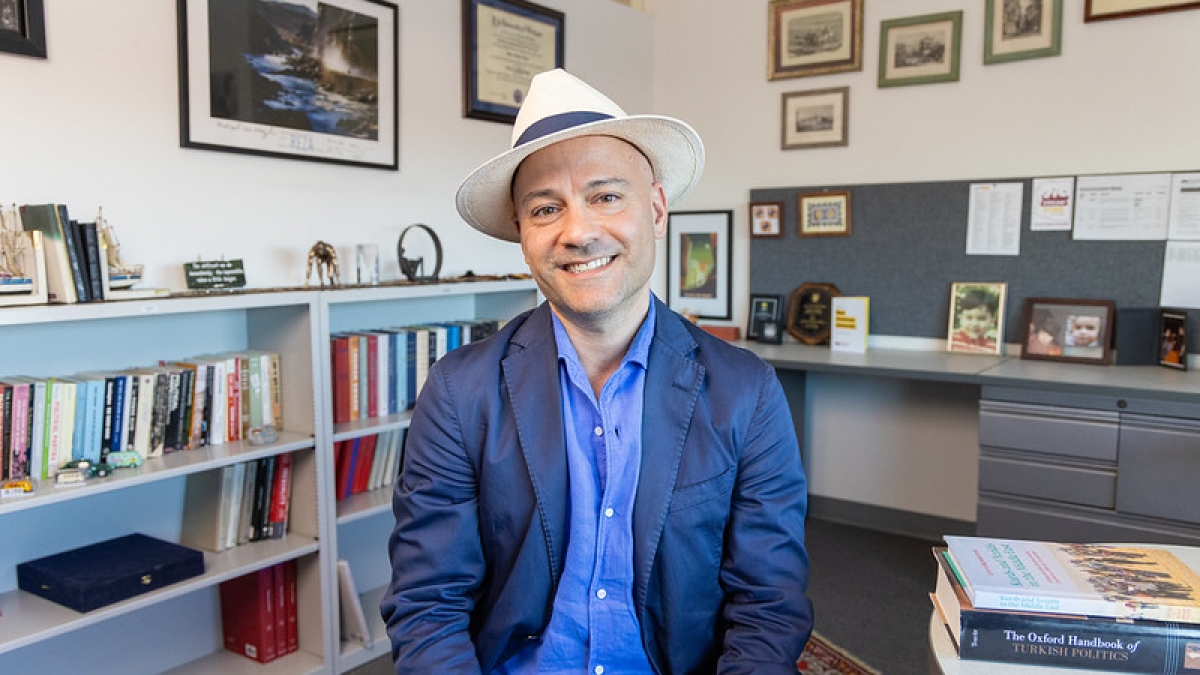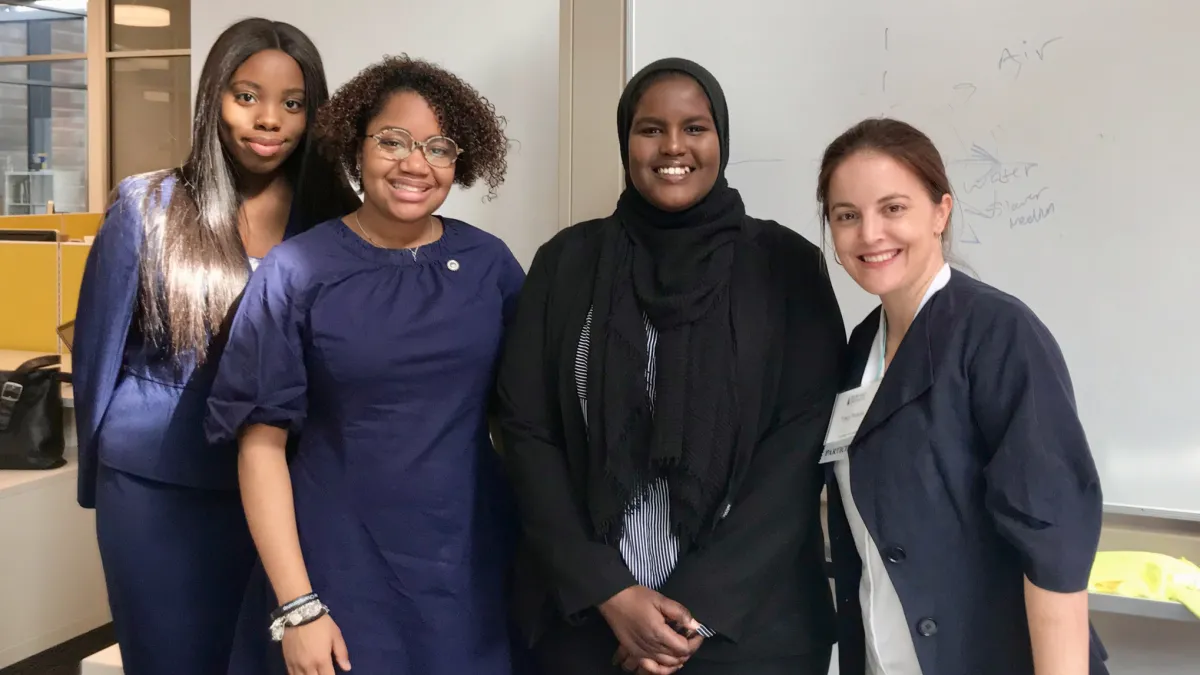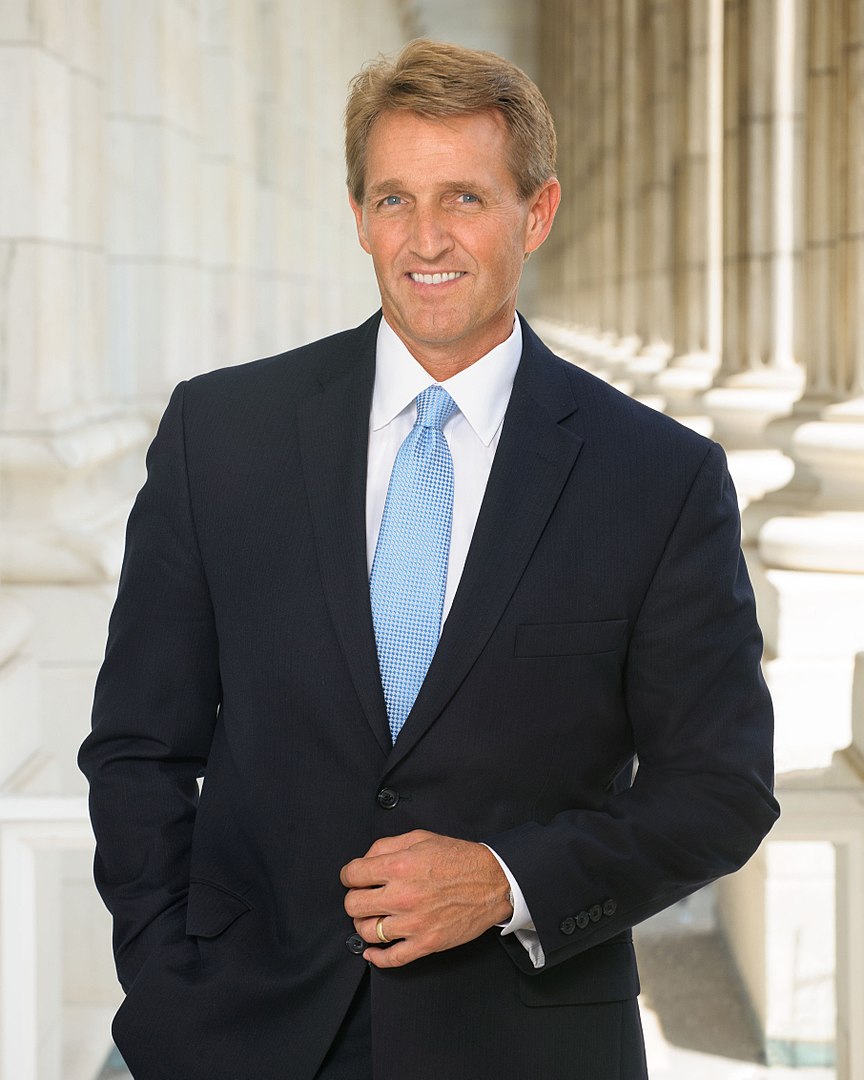Former Sen. Jeff Flake answers ASU poli-sci students' most burning political questions
The former Arizona senator talked about partisanship, the role of media and his thoughts on the importance of civil service

It’s not every day you get to meet with a senator and ask him whatever you want for a whole hour, but that’s exactly what students in the Arizona State University chapter of the national political science honor society Pi Sigma Alpha got to do on Sept. 23 when former Arizona Sen. Jeff Flake joined them on Zoom for a candid question-and-answer session.
School of Politics and Global Studies Associate Professor Mark Ramirez welcomed the senator before Pi Sigma Alpha chapter president Anjelica Miller, who is double majoring in political science and criminology and criminal justice, introduced Flake to the group of enthusiastic students.
After a brief rundown of his personal and political history, noting the senator was born in Snowflake, Arizona, and served as the executive director of the Goldwater Institute before retiring from the Senate in 2017, Miller launched directly into the students' questions.
Topics ranged from the lack of unity in American politics to the role of media in sowing division to Flake's thoughts on when to confirm the late Supreme Court Justice Ruth Bader Ginsburg’s replacement.
ASU Now was on hand to listen in and recounts some of the highlights,
Editor's note: Answers have been edited for length and clarity.
Former Sen. Jeff Flake. Photo courtesy U.S. Congress
Question: What advice would you give to someone considering running for office?
Answer: Do it! We need good people in office, and it’s a noble profession. There are good people on both sides of the aisle. I would just encourage you to involve yourself in a positive way that uplifts rather than a lot of what you see today ... that just drives parties further apart. I’ve had death threats; I got literally shot at on a baseball field. So it’s tough, but it will and can get better. So people need to offer themselves up to run for public office. If we’ve learned anything in the last couple years, it’s that competency matters.
Q: What are your thoughts on appointing Ruth Bader Ginsburg’s replacement?
A: Two years ago today, I was in the Senate and we were debating Brett Kavanaugh. It was a tough time for the country and for the Senate in particular, and I fear that this might even be worse. My own view is that Republicans have every right (according to the Constitution) … to nominate someone … but that doesn’t make it the right thing to do. If it were me in the Senate, I would favor holding off.
Q: What concrete measures would you recommend to quell the division driving the two parties apart?
A: I don’t think you can legislate that. Compromise is not an ugly word. Barry Goldwater, one of my political heroes, was known for saying that politics is nothing more than public business; sometimes you have to make the best of a mixed bargain. If you’re going to actually legislate, you should be prepared to do that.
Q: How has media played a role in dividing parties/the public?
A: As soon as one television network or one cable outlet figured out you could make a good amount of money by catering to a small segment of the population, we were in trouble. They have a business model that works; the problem is it’s horrible for the country. … Traditional media has become bifurcated; add onto that social media, and it’s just a toxic brew. I’m not suggesting we try to regulate media or free speech, but members of Congress need to follow different incentives.
Q: What are your thoughts on consuming media nowadays?
A: The struggle these days is to not just look at your tablet or your phone and read whatever the algorithm sends you. For people my age, I would say, "Change the channel." For your age, get out of your newsfeed. Read broadly. I think we’d be far better off as a country if everyone did that.
Q: Was your retirement strategic, and do you think you’ll ever run for office again?
A: I would have liked to do another term in the Senate; I planned on that. But when it came time to make that decision, I knew that in order to be successful as a candidate, I would have to change some of my deeply held positions on things like immigration and foreign policy. Or that I would have to condone behavior and conduct that I couldn’t condone. And ultimately, I knew I’d have to stand on the campaign stage with the president when he came to Arizona and laugh along with his jokes or look at my shoes when he maligned my colleagues or individual groups, and I just couldn’t do it. Like I said, public service is a noble profession, but there are others ways I can serve rather than running for office. I haven’t ruled out some other form of public service.
Q: What are your predictions for the future of American politics?
A: I’m all for partisan politics when it relates to policy. … But this (situation where) you’re either with the president or you’re against the president — that’s no way to go. What I hope to see happen 10 years from now is that we have a political space where Democrats and Republicans can argue about policy again and can debate issues. There’s just very little debate or deliberation going on right now. I do think we will be ourselves again. We’ve been through worse in the past.
Q: What advice do you have for us students?
A: You’re called to the process, and that’s commendable. I hope you’ll consider public service, whether as an elected official or some other way. We need good, honorable, competent people to work in politics, and we're counting on your generation to save us.
Top photo courtesy of Pixabay
More Law, journalism and politics

School of Politics and Global Studies director's new book explores mass violence
Why do people commit atrocities and why are certain groups, including religious and ethnic, more vulnerable to large-scale violence? These questions are explored in a new book by Güneş Murat Tezcür…

ASU faculty contributing to improvement of Wikipedia
Many academics have a love-hate relationship with Wikipedia. While the website has information about almost anything you can imagine, the credibility of that information is sometimes suspect. Tracy…

ASU Law students gain vital experience through Los Angeles location
Students at the Sandra Day O’Connor College of Law at Arizona State University may be concentrated in the school’s downtown Phoenix headquarters, but they have more choices than ever when it comes to…
